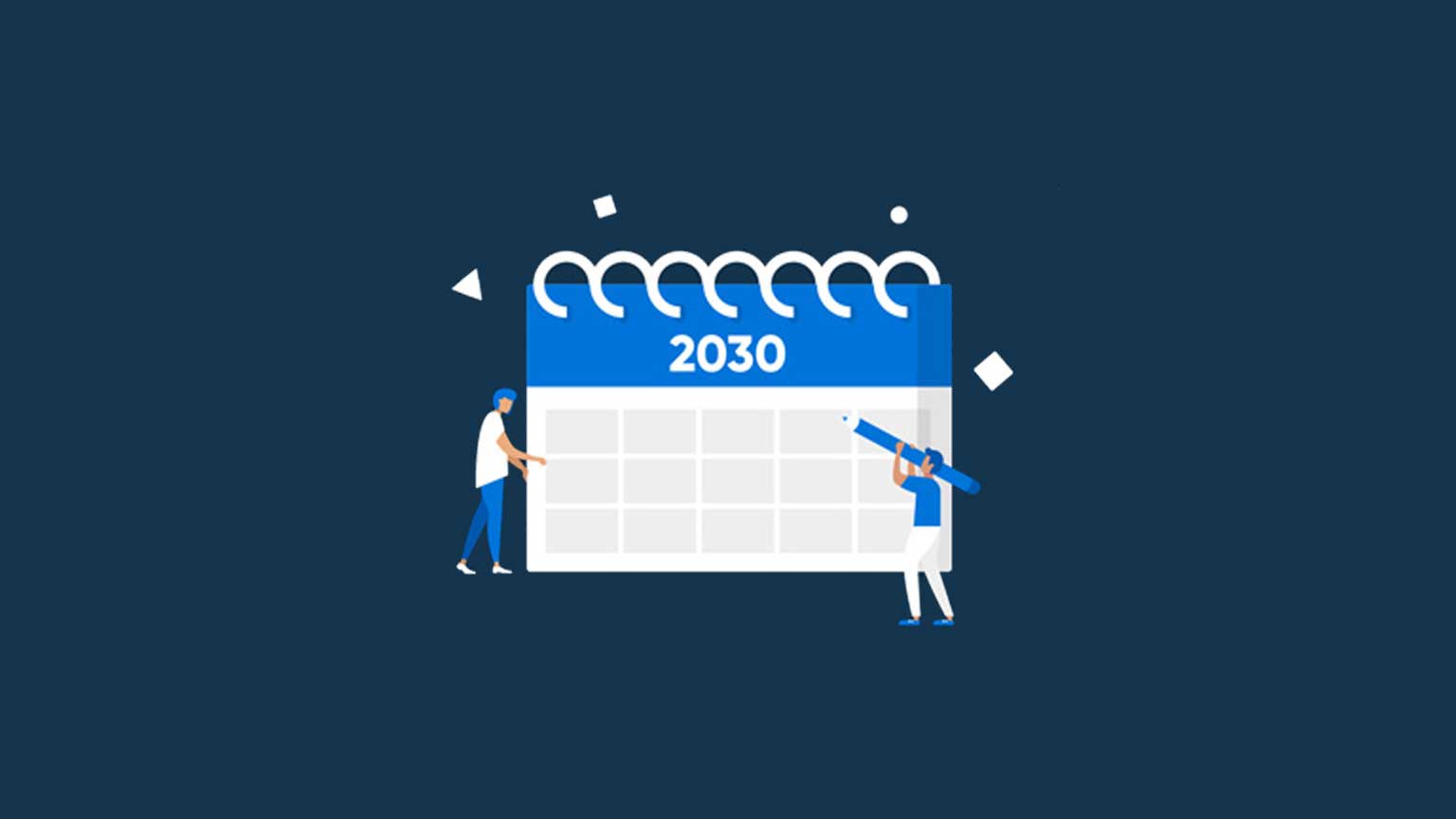
| 23 January 2020
With the new year and new decade now in full swing we’ve been talking with our partners, Me Learning about what the next 10 year’s might hold for learning and training.
Me Learning, our strategic digital learning partners since 2018, have been working in digital learning for over 13 years. Through their extensive experience they have discovered that asking the right questions through the years is key to ensuring their commitment to the way people learn, is unwavering.
It’s vital to look ahead, and the team at Me Learning are doing just that, taking a leap into the future to uncover what could be some of the key drivers influencing the world of learning as we know it in 2030…
Learner-centric and time-based
In the last ten years we have seen a shift to learner-centric and time-based learning. This trend will continue throughout the next decade. Learning will be tailored to fit the way learners absorb knowledge best – which is in small bits. We can expect to see a continuing departure from extremely long training sessions to shorter and sharper sessions. Learners will also be able access the knowledge they need right when they need it. Here’s an example. We can expect to see more individuals choosing to learn just what they need to fix a broken chain on a bicycle instead of taking the time to learn how a bicycle works. It’s what our CEO Nick Richards describes as ‘learning at the point of need.’
With regards to time, we can anticipate that instead of lengthy training sessions or a full day of learning, it is possible that the learning covering a specific topic would be broken down into 10-minute daily sessions over an extended period. This model will provide learning that is reinforced through daily repetition which has been proven to increase knowledge retention
Personalised learning outcomes
Presently, when a learner signs up for a course, the objectives and direction the course will take is laid out from the beginning. As a result, learners have limited input on what they want their learning journey to look like – in most cases they are tied to the road map the instructor provides. However, our Me Learning’s Systems Training Manager, Sue Caverley, believes this would not be the norm 10 years from now. Sue believes that learners will have more input in their learning experience, allowing them to choose to learn only the bits that are most relevant to them.
This personalisation of the learning experience would also allow the learner to design their own learning pathways. This flexibility would enable the learner to determine (based on what they want to get out of a learning experience) key areas in a specific topic they would prefer to spend more time on. Ten years from now, we see learners having more say in what they want from their learning outcomes.
Rise in Artificial Intelligence (AI) and Virtual Reality (VR)
One major factor that will impact the learning experience 10 years from now would be the channels used to deliver knowledge. There is no doubt that AI will continue to shape learning in a variety of sectors. Nevertheless, virtual reality is disrupting the learning experience too. We can expect to see an increase in the use of VR especially with learners conducting very risky or costly experiments. Stepping into the world of virtual reality makes the learning experience as close to the real thing as possible.
Me Learning’s Head of Customer Experience, Jon Cross, also highlighted that learning would be very accessible to learners anytime and at any place. He anticipates that the same way social media has become a major part of our daily lives, access to knowledge would be as close as that. There would be almost no obstacles for anyone seeking knowledge on a subject because learning will become integrated into our daily lives.
An interesting look forward into how learning could adapt over 10 years. Skills for Health are looking forward to continuing the development of our own approach to learning and working with key partners such as Me Learning to provide quality online learning solutions that support the health and social care sector deliver meaningful patient care.
Get in touch to talk with your digital learning expert to see how you can future-proof your learning and training strategy.
To read the full article from our partners, Me Learning, visit their website.
